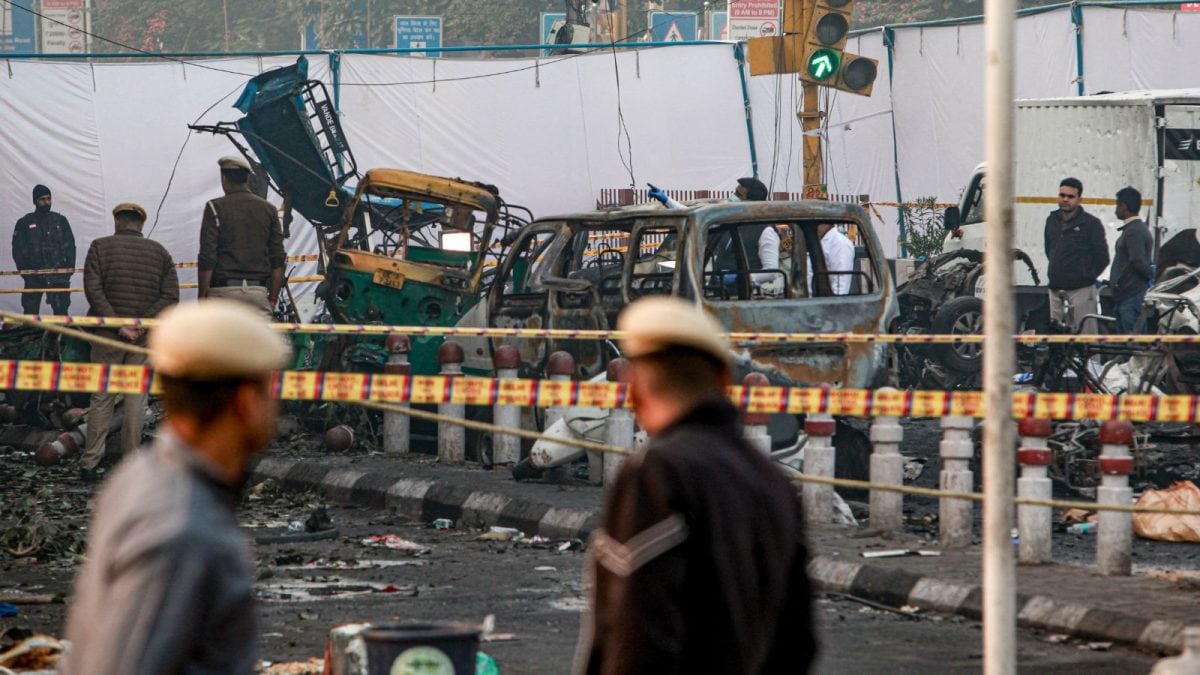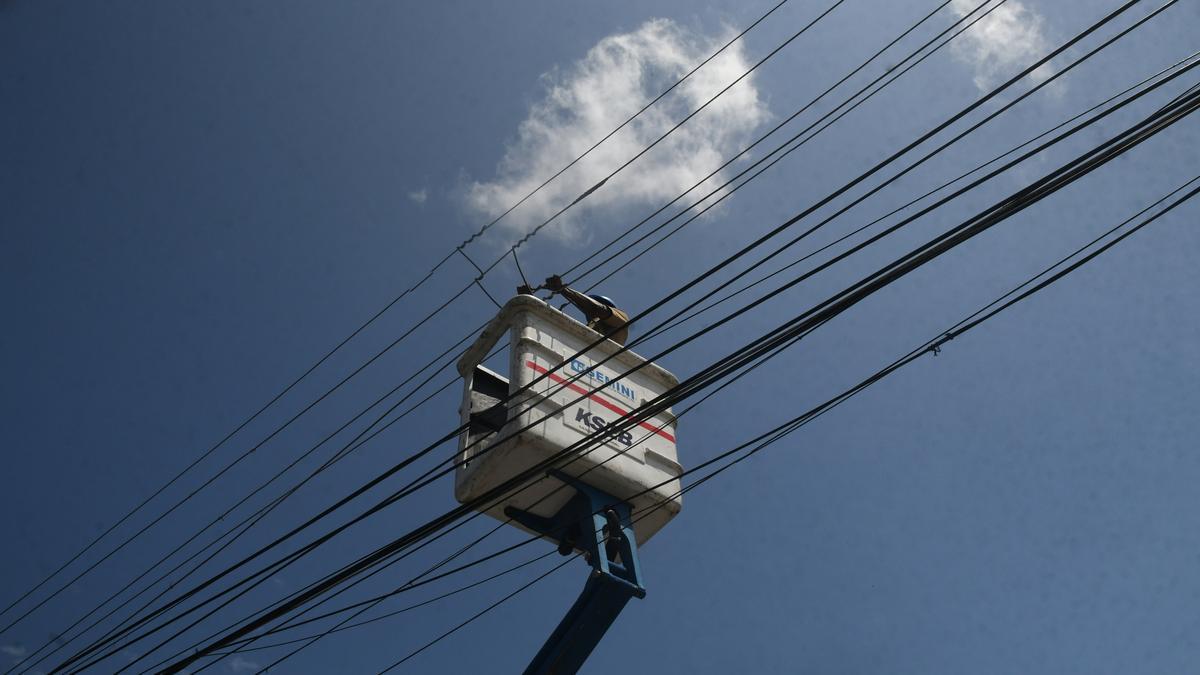ARTICLE AD BOX
Last Updated:November 12, 2025, 14:48 IST
The logic is simple. When people do not give their household waste to the authorized collection vehicles, they often dump it in vacant plots, drains, or roadside corners.

Currently, fines for throwing garbage on roads or in open areas range from Rs 100 to Rs 1,000 depending on the violation (Image: Canva)
Bengaluru’s solid waste problem is one that refuses to go away. Every few months, new measures are introduced—more trucks, more awareness campaigns, and more fines. Yet, the garbage piles keep returning.
The city produces over 4,000 tonnes of waste every day, and managing this volume has become one of the biggest civic challenges for the civic authorities and its waste management arm, Bengaluru Solid Waste Management Limited (BSWML).
Now, in a move that has surprised many residents, officials are preparing to impose fines not only on those who litter but also on those who fail to hand over their garbage to the collection vehicles. The idea may sound unusual, but authorities say it is a necessary step to stop citizens from dumping waste elsewhere.
Why the Fine Was Introduced
The logic is simple. When people do not give their household waste to the authorized collection vehicles, they often dump it in vacant plots, drains, or roadside corners.
This scattered waste not only ruins the city’s appearance but also blocks drainage systems and contributes to mosquito breeding. To discourage such behaviour, BSWML plans to fine anyone who avoids giving their daily waste to the designated garbage collectors.
According to officials, the fine is not intended as punishment but as deterrence. The aim is to ensure residents hand over segregated waste, both wet and dry to the collection staff every day instead of finding shortcuts.
Official Stand on the New Rule
Karigowda, Executive Officer of Bengaluru Solid Waste Management Limited, confirmed that the new enforcement drive is part of a broader clean-up strategy. “We will identify and fine those who do not regularly hand over their waste and instead throw it outside," he said.
“Many people also fail to segregate their wet and dry waste, which complicates recycling. From now on, separating waste will be strictly monitored. If residents refuse to hand over garbage, both a fine and legal action will follow."
Officials added that marshals and ward-level staff have been instructed to maintain daily logs of waste collection routes. Those who regularly fail to provide their garbage will be identified through these records.
Public Reaction: Support and Scepticism
Residents have had mixed reactions to the announcement. Some believe the fine could finally force people to follow proper waste disposal habits, while others argue that civic authorities should first fix inconsistencies in garbage collection.
Senior citizen Kempanna from Rajajinagar voiced a common concern. “We agree with identifying and fining those who don’t give garbage daily. But the garbage truck doesn’t come every day. Sometimes it skips two days. The officials should first make the system reliable before penalizing citizens," he said.
Others feel the measure could reduce the growing trend of illegal dumping, especially near under-construction sites and empty plots. However, environmental activists argue that enforcement must be fair. They suggest that BSWML publish ward-wise collection schedules and helpline numbers for complaints before imposing fines.
How Fines Will Work
While exact penalty amounts have not been finalized, officials say they will follow the existing structure used for littering offences. Currently, fines for throwing garbage on roads or in open areas range from Rs 100 to Rs 1,000 depending on the violation. The new rule will extend the same framework to those who fail to hand over household waste.
Authorities have also planned awareness campaigns to educate people about segregation and the importance of daily collection. In most areas, waste is expected to be separated into three categories—wet waste, dry waste, and sanitary or hazardous waste. Each type goes to a different processing unit, and when citizens fail to comply, it disrupts the entire chain.
A Larger Clean-Up Mission
The latest decision is part of Bengaluru’s larger “Zero Waste to Landfill" initiative, under which the city aims to send minimal waste to dumping grounds by promoting composting, recycling, and decentralized waste processing. Officials believe that strict enforcement, combined with citizen cooperation, can bring visible change.
For now, the message from BSWML is clear: every household must hand over its garbage daily, properly segregated and on time. As the city tightens its grip on waste management, Bengaluru’s clean-up story could either become a model for other metros—or another warning that civic reforms need both planning and patience to succeed.
The News Desk is a team of passionate editors and writers who break and analyse the most important events unfolding in India and abroad. From live updates to exclusive reports to in-depth explainers, the Desk d...Read More
The News Desk is a team of passionate editors and writers who break and analyse the most important events unfolding in India and abroad. From live updates to exclusive reports to in-depth explainers, the Desk d...
Read More
First Published:
November 12, 2025, 14:48 IST
News india Bengaluru’s New Clean-Up Rule: Fine For Not Handing Over Household Waste
Disclaimer: Comments reflect users’ views, not News18’s. Please keep discussions respectful and constructive. Abusive, defamatory, or illegal comments will be removed. News18 may disable any comment at its discretion. By posting, you agree to our Terms of Use and Privacy Policy.
Stay Ahead, Read Faster
Scan the QR code to download the News18 app and enjoy a seamless news experience anytime, anywhere.


 1 hour ago
3
1 hour ago
3







 English (US) ·
English (US) ·